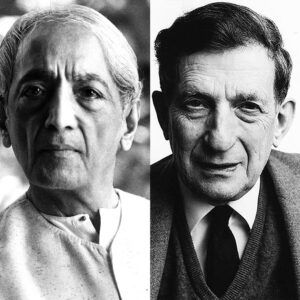Conversations to understanding the human experience
4. February 2023

When in 2016 I had an experience that forever changed my view of myself and the world around me, I searched for literature and inspiration to understand what I had experienced in a flash of a moment in a municipal office on a cold December day. I talk about that experience in my book Sentenced to Blindness – Now what?
I became interested in understanding what mechanisms create the human experience, and I became interested in understanding why I experience the world the way I do.
Back then, my world was defined by the fact that I have an eye disease that is slowly making me go blind, and my thoughts consisted of trying to fight what was my reality and thus I created inner conflict with my reality.
As I share in the book, I began to look for answers to many of my newly arising questions about life – from the great thinkers of the past. I sought answers in the ancient philosophies and religions, (without becoming religious I must add!) and among many sources my new world view came from two very different gentlemen.
One a very famous quantum physicist who for a period worked with Albert Einstein and Robert Oppenheimer. His name was David Bohm and he realised at some point in his scientific career that he couldn’t find answers to the mysteries of the universe by being solely bound by the scientific process, and therefore turned to philosophy and the esoteric.
As fate would have it, he discovered the Indian philosopher Jiddu Krishnamurti, who was one of the most important spiritual leaders of the 20th century.
In the 80s, the two gentlemen had a series of very deep and interesting conversations who fortunately were recorded, and I have listened closely to all of them. They are still highly relevant today, as they explored fundamental questions about the human experience and thought. Despite coming from different backgrounds, the two men were able to engage in a deep dialogue about topics such as consciousness, freedom, and the impact of society on our thinking.
The essence of their conversations was to encourage individuals to become more aware of their own thoughts and patterns of thinking, and to understand that we ourselves are responsible for our own lives and experiences. A truth that can be hard to swallow, because it is much easier to blame all your suffering on something “out there” rather than on something inside yourself.
They emphasized the idea that change can occur when we become aware of our thoughts and question them, rather than simply accepting them as given. This is what I myself concluded before seeking insight into these mechanisms, and my book and lecture are about the journey, which I call the journey from Hopelessness Street to Possibility Road. This is what I now share with groups and individuals via mindfulness and meditation. It has become my new mission.
Additionally, their conversations emphasized the interconnectedness of all things and the importance of breaking down the barriers that divide us, both as individuals and as a society. They encouraged people to move beyond their preconceptions and biases, and to engage in honest, open-minded dialogue with others in order to build a more harmonious and interconnected world.
I can only recommend anyone on a journey of self-discovery to study and listen to these conversations. In general, studying their individual work. Overall, the conversations between them offer valuable insights into the human experience and the power of thought, and can serve as a source of inspiration for individuals looking to deepen their understanding of themselves and the world around them.
Here is a link to one of their conversations



